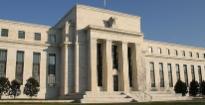Fed Prepares for Tea Party Anger
 The New York Times reports:
The New York Times reports:
WASHINGTON — The Federal Reserve, having weathered criticism of its regulatory failings and interest rate decisions in the years before the financial crisis, is facing a new source of anger: the Tea Party movement.
Take, for example, three Republican nominees for the Senate who relied on support from Tea Party activists to vanquish primary rivals supported by the party establishment:
In Utah, Mike Lee has accused the central bank of trying to “monetize the debt” by printing money to buy government bonds — a motivation that Fed officials have hotly denied. Ken Buck in Colorado has called for “shining a light on the Federal Reserve,” saying it is too cozy with private interests. And in Kentucky, Rand Paul has argued that the Fed is devaluing the dollar and causing boom-bust cycles through its easy-money policies.
They have made the Fed a target of their ire, linking it to their criticisms of President Obama’s stimulus effort and the Wall Street bailouts begun under President George W. Bush.
None of them has gone as far, though, as Mr. Paul’s father, Representative Ron Paul, a Texas Republican and libertarian activist who is seeking to abolish the central bank. (His 2009 book, “End the Fed,” is popular in Tea Party circles.) The senior Mr. Paul, who ran for president in 2008, is in line to lead a House subcommittee that oversees the Fed if Republicans win control of that chamber in November.
Criticism of the Fed has been more of a simmering undercurrent in this election cycle than a dominant theme, even for insurgent candidates. But Fed officials, who try to avoid public discussion of electoral politics, have become increasingly attuned to the probability that their critics will have a louder voice in the next Congress.
The likely outcome is greater scrutiny of the Fed, even though the Wall Street regulatory overhaul that Mr. Obama signed in July already calls for a one-time audit of the Fed’s emergency lending programs as well as a study by the Government Accountability Office of how the central bank is governed.
“The Fed has become politicized, whether we like it or not,” said Tyler Cowen, an economist at George Mason University who writes a macroeconomics blog.
Click here to read more.

